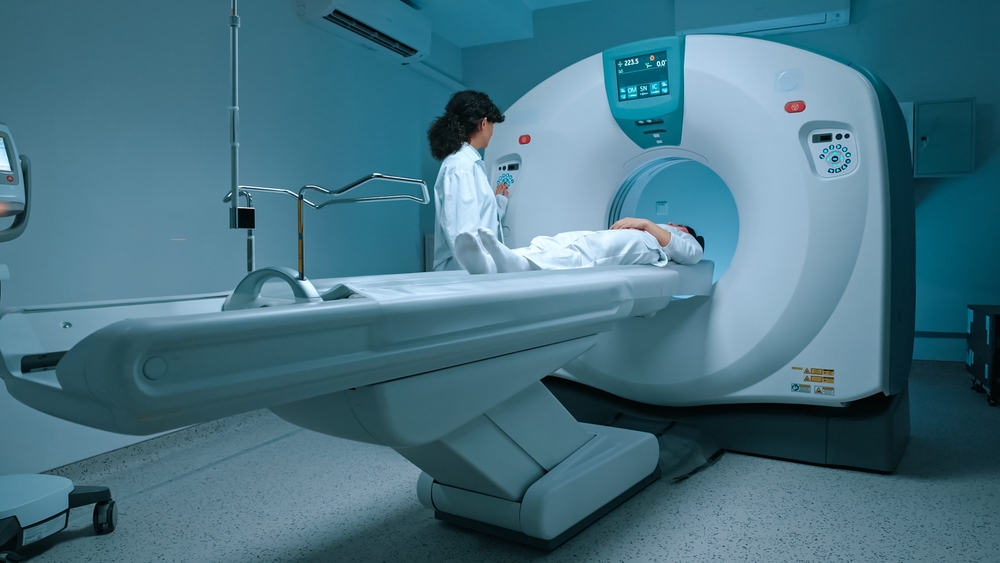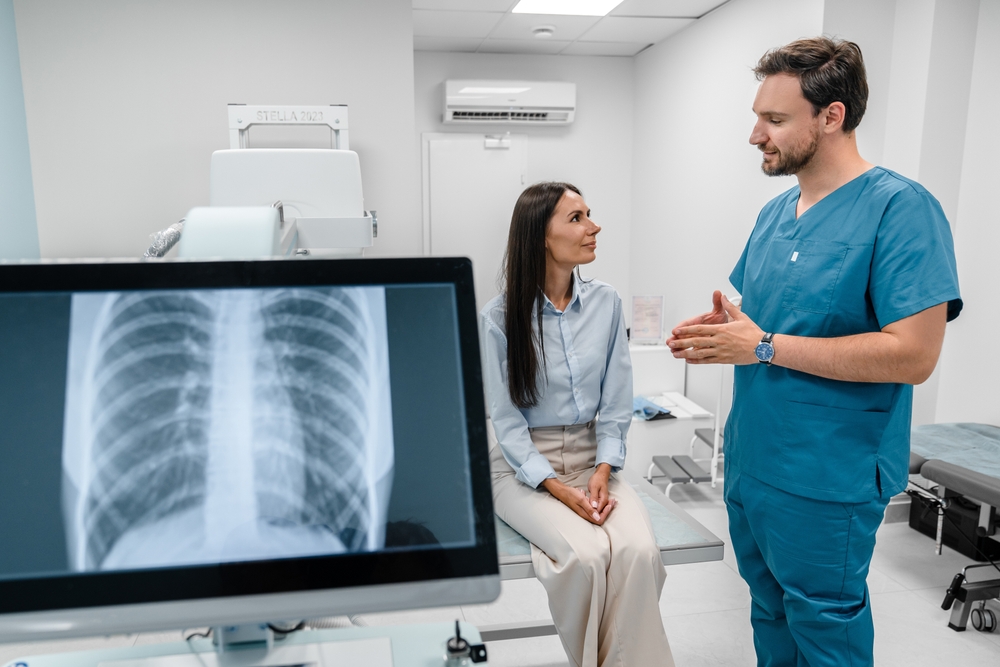Accurate diagnosis and timely treatment of medical conditions are crucial. Diagnostic imaging centers play an essential role in achieving these goals by providing a range of imaging services that allow healthcare providers to visualize the internal structures of the body. These services, ranging from MRIs to X-rays, help identify, monitor, and treat various conditions, ensuring patients receive the appropriate care.
Why Diagnostic Imaging is Essential in Healthcare
Diagnostic imaging is indispensable in modern healthcare, enabling physicians to obtain detailed images of the body’s internal structures. These images are crucial for diagnosing medical conditions, monitoring disease progression, and evaluating the effectiveness of treatments. Without diagnostic imaging, many conditions would go undetected until they reached an advanced or life-threatening stage.
Imaging techniques, such as MRI, CT scans, and X-rays, allow for the non-invasive examination of the body, giving healthcare professionals a clearer understanding of issues ranging from fractures and infections to cancers and neurological disorders. Additionally, diagnostic imaging aids in surgical planning, reducing risks and improving the chances of a successful outcome.

Types of Diagnostic Imaging Services Available
A diagnostic and imaging center typically offers various services that cater to different diagnostic needs. These services use cutting-edge technology to produce high-quality images that assist in diagnosing and treating a wide range of medical conditions.
MRI (Magnetic Resonance Imaging)
MRI is a powerful imaging technique that uses strong magnetic fields and radio waves to produce detailed images of organs and tissues inside the body. It is particularly useful in diagnosing issues related to the brain, spine, joints, and soft tissues. Unlike X-rays, MRI does not use ionizing radiation, making it a safer choice for many patients.
CT Scans (Computed Tomography)
CT scans combine X-ray images taken from different angles and use computer processing to create cross-sectional images of bones, blood vessels, and soft tissues. This diagnostic tool is commonly used to detect conditions such as tumors, internal bleeding, and infections. CT scans are faster than MRIs, making them ideal for emergency situations.
X-rays
X-rays are one of the oldest and most commonly used imaging techniques. They are particularly effective for visualizing bone fractures, lung conditions, and dental problems. X-ray machines use ionizing radiation to capture images of the inside of the body, typically offering a quick and cost-effective diagnostic solution.
Ultrasound
Ultrasound imaging, or sonography, uses high-frequency sound waves to create images of the inside of the body. It is widely used to examine the heart, blood vessels, and organs like the liver and kidneys. Ultrasound is also the primary imaging tool used during pregnancy to monitor fetal development.
DEXA Scans (Bone Density Scans)
A DEXA scan is used to measure bone mineral density and is most commonly used to diagnose osteoporosis. This type of scan uses a low dose of X-rays to produce images of the bones, helping doctors determine bone strength and the risk of fractures.
Mammography
Mammography is a specialized X-ray imaging technique used to detect breast cancer. It involves compressing the breast between two plates to get clear images of the tissue. Regular mammograms are an essential part of breast cancer screening for women over the age of 40 or those with a family history of breast cancer.
The Role of Radiologists in Diagnostic Imaging
Radiologists are medical professionals who specialize in interpreting images produced by diagnostic imaging equipment. Their expertise is critical in diagnosing medical conditions accurately and providing recommendations for treatment. A radiologist’s ability to analyze images and collaborate with other healthcare providers helps ensure the right treatment path is chosen.
Radiologists play an essential role in the entire imaging process. From reviewing images to providing diagnostic reports, they help clinicians understand the results and make informed decisions. In specialized diagnostic imaging centers, radiologists often have sub-specializations, enabling them to focus on specific areas of the body, such as musculoskeletal, cardiovascular, or neurological imaging.

Advantages of Choosing a Specialized Diagnostic Imaging Center
Choosing a dedicated imaging and diagnostic center over a general hospital can offer several advantages. These specialized centers provide focused care and expertise in diagnostic imaging, ensuring high-quality results and faster services for patients.
Access to Advanced Technology and Equipment
Specialized diagnostics imaging centers invest heavily in the latest technologies and imaging equipment, ensuring they provide the most accurate and detailed results possible. Patients benefit from cutting-edge MRI and diagnostic imaging tools that produce high-quality images and improve diagnostic accuracy.
Expertise in Specialized Radiologists and Technicians
A center for diagnostic imaging typically employs radiologists and technicians who are highly trained in specific imaging techniques. These specialists are better equipped to handle complex cases, offer precise interpretations, and provide expert advice on treatment plans.
Comprehensive Range of Imaging Services in One Place
A diagnostic imaging facility usually offers a wide variety of imaging services, providing convenience for patients who may need multiple tests. Instead of visiting different locations for each procedure, patients can receive all necessary imaging services in one place, streamlining the process and saving time.
Faster Results and Reporting
Specialized diagnostic imaging centers are designed for efficiency, ensuring that patients receive their imaging results quickly. Rapid reporting is essential, especially in urgent medical situations, where timely interventions can make a significant difference in patient outcomes.
Improved Accuracy in Diagnoses and Treatment Plans
The combination of advanced equipment and highly skilled professionals at an imaging diagnostics center leads to more accurate diagnoses. This helps healthcare providers develop more effective treatment plans, leading to better patient outcomes and fewer errors.
Patient-Centered Care and Comfort
Many diagnostic imaging centers prioritize patient comfort, providing a more relaxing environment than traditional hospital settings. Specialized centers often feature amenities designed to reduce patient anxiety and improve the overall experience, such as soothing music, calming decor, and shorter wait times.
Enhanced Safety and Quality Standards
Specialized diagnostic imaging centers adhere to strict safety and quality standards. They are regularly inspected to ensure compliance with the latest regulations, ensuring patient safety throughout the imaging process. Additionally, these centers are focused on minimizing unnecessary radiation exposure, providing a safer option for patients.
Best Diagnostic Imaging Center
When looking for the best diagnostic imaging center, it’s essential to consider factors like the quality of equipment, the expertise of radiologists, patient reviews, and the availability of a broad range of imaging services. Some of the top centers are recognized for their advanced technology, excellent patient care, and fast, accurate results. Finding the right imaging center can help ensure that patients receive the highest standard of care and the most accurate diagnostic results, leading to the best possible health outcomes.
The Critical Role of Diagnostic Imaging Centers in Healthcare
Diagnostic imaging centers are crucial to modern healthcare, providing a range of imaging services that enable accurate diagnoses and effective treatment plans. By offering access to advanced technology, specialized professionals, and patient-centered care, these centers play an indispensable role in ensuring the well-being of patients. Whether for routine screenings or urgent medical needs, diagnostic imaging facilities contribute significantly to better healthcare outcomes, improving both diagnosis and patient care.
One Step Diagnostic is a trusted provider of reliable diagnostic imaging services, offering advanced technology, expert radiologists, and a commitment to patient care. With state-of-the-art equipment, expert radiologists, and a commitment to patient comfort, One Step Diagnostic offers a comprehensive range of imaging services, including MRI, CT scans, X-rays, ultrasounds, and more. Contact them today to schedule your appointment and experience the highest quality imaging services for your health.




